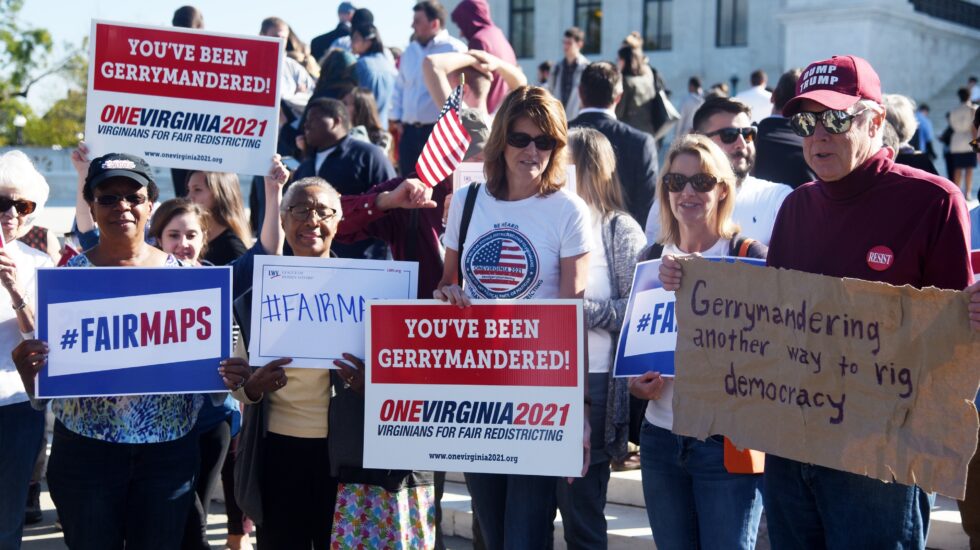Gerrymandering is a word we are hearing more this year than ever before. By definition, it’s manipulating the electoral boundaries to favor one party or class. Two guesses who this favors most? ABC reports:
Across the nation, numerous congressional Republicans are hoping to survive forecasts of a Democratic wave due partly to a political seawall erected by Republicans who controlled the redistricting process in more states than Democrats after the 2010 census. The big question is whether enough of that seawall will hold to thwart Democrats’ attempt to retake the U.S. House.
Add gerrymandering to voter suppression (also tilting toward the GOP) and it sure feels like the Democrats are climbing an uphill battle in several districts.
Rolling Stone recently zeroed in on some key races noting one example in particular:
Until recently, Pennsylvania’s 7th congressional district in the southeast corner of the state summed up the insanity of partisan gerrymandering in the United States. The district was a monstrosity, a Rorschach inkblot that stretched from the Republican-leaning suburbs of Philadelphia out into farm and Amish country.
The report went on to say the district was changed by the Republican-controlled legislature and Republican governor. It helped Republicans gain 6 seats in what “a political analyst called it ‘the gerrymander of the decade.”
In this case, the courts intervened with Rolling Stone saying:
Earlier this year, the state Supreme Court struck down Pennsylvania’s epic gerrymander and declared that a new map must be drawn. This time, however, when the GOP-led legislature came back with yet another nakedly partisan map, Gov. Tom Wolf, a Democrat, vetoed it. In the end, the state supreme court released its own map, one with clear lines and more competitive districts. Pennsylvania’s democracy was restored — at least for now.
Former Attorney General Eric Holder has been talking a lot about gerrymandering. He is sending out a warning about the issue, hoping it will push more Democrats to the polls.
Be aware. The “blue wave” is going to hit gerrymandered walls. It is not certain that the wave will reach the shores of justice. But Republican gerrymanders CAN be overcome if people turn out and vote in record numbers. That’s what it will take. VOTE!! https://t.co/k3arJxe0pZ
— Eric Holder (@EricHolder) October 29, 2018
When we asked News & Guts readers what issues were on top of your minds for the midterm elections, lots of people told us gerrymandering was a big concern:
Lynn Smith-Cronin (Near Houston, TX) GERRYMANDERING (yes, I yelled that word). My district is spread across three towns …and is a skinny, rambling curve. It’s ridiculous and it’s unfair representation. I don’t mind a curve or an angle to keep neighborhoods together but what the political process has done now does not help us and gives unfair advantages.
Tom Shafer (Asheville, NC) Here in the gerrymandered banana republic of North Carolina, my emphasis is to break the veto-proof majorities in the General Assembly (House and Senate.)
Buddy Woodward (Saginaw, TX) This is important with the 2020 census happening soon. Something needs to be done to prevent gerrymandering… This is not fair representation. Allows the Republicans to control the Senate and several states legislatures.
Unfortunately, several of the gerrymandering legal cases will be decided by the Supreme Court which has so far avoided determining political districts. This November 5 states have voter initiatives on the ballot to appoint an independent commission to determine political districts.
So the efforts to rein in partisan gerrymandering will pursue 2 tracks: legal action and efforts to create independent commissions.
Is the process fair if redistricting is only based on, equal population, keeping towns, cities, counties intact to the extent possible, keeping communities of interest together without any partisan consideration? One party might still be at a disadvantage.



